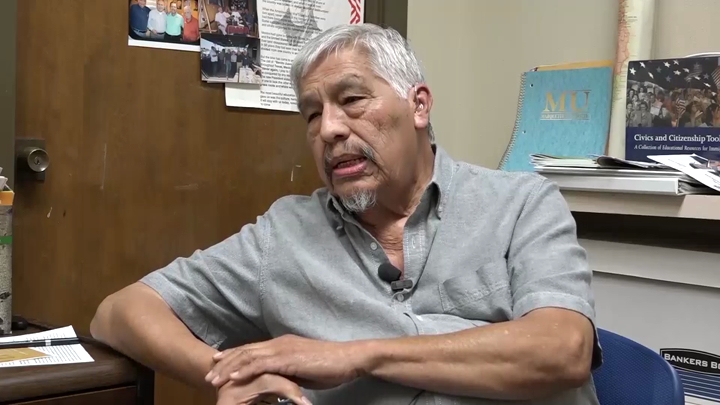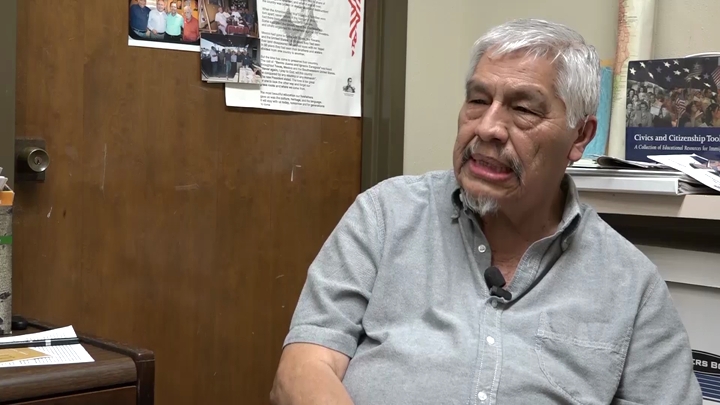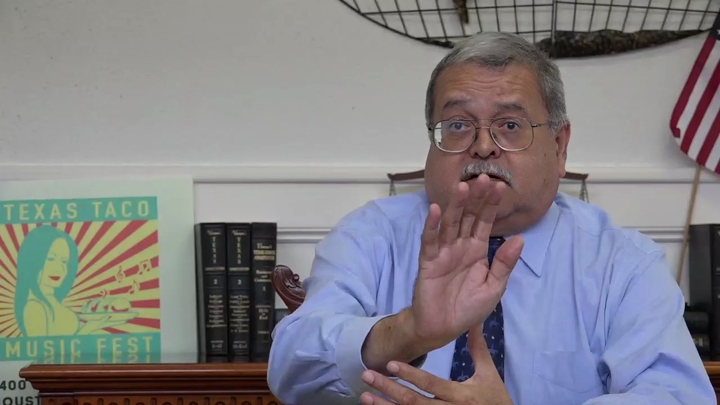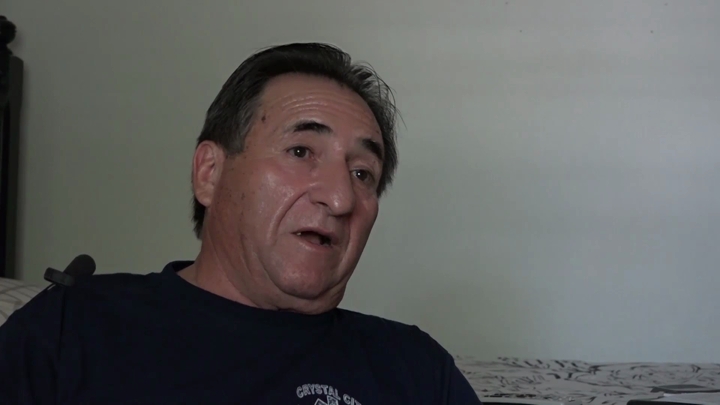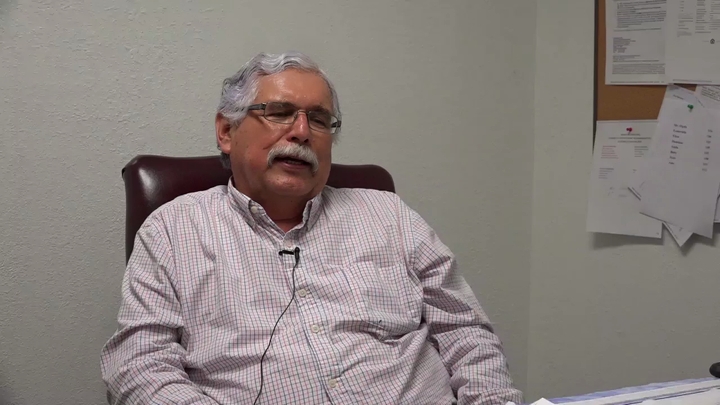Jimenez / Raza Unida Party
sign up or sign in to add/edit transcript
Interviewer: At some point you become involved in La Raza Unida party, can you tell us what year you became involved? Maria Jiménez: That is hard because I do not remember the year or years, but La Raza Unida was just an extension of the chicano movement. For us here in Texas it was because the democratic party was a Dixiecrat, and there was no Republican party at the time. We were working toward developing an independent in the community. La Raza Unida became a vehicle for a ultimate expression of the independent political movement. I remember Rofolfo Acuña and his book Occupy America he characterizes the Chicano activist in California, Colorado, and New Mexico as agitators. But he say the activist in Texas were organizers. He makes that distinction. I think we view it that way. Interviewer: What does that mean? Maria Jiménez: We were the only ones who registered the political party. It was not just an idea- it was a registered political party. That went through very detailed state law. We are the reason the Green Party cannot get registered. It is a reaction of the political system against our success, was to develop legal mechanisms from organizing again. We called it a third party, but in reality we were the second party. We were larger than the Republican party at the time. But our idea was the idea of a vehicle where we would not be stopped by the Dixiecrats. Or at least the conservatives to negotiate with them. But it was built on community participation. Full community participation in the political process. So, we participated in getting it registered here. My role was that I was asked to run for state representative, which I did. My district had a majority Latino and there was a sizable African American population, and some whites in the district as well. Interviewer: What district was that? Maria Jiménez: The 87th where Ben Reyes was the state representative of that particular district. They would question us- “Why are you running against a Latino? Why don’t you go to one..” The issue here was not the individual but the community empowerment. That district was where the Mexican Americans lived. Our purpose was to organize the community to gain a position. Interviewer: Was the Mexican American community the only community you lobbied? Maria Jiménez: No, because we did a door-to door- campaign. We probably knocked on 100,000 doors. A third of the district was African American. It was based on our experience at U of H and the alliances that we built with African American students. That we were able to cement a relationship with a group of activists in the third ward. And who went with us – they did not just say “hey this is a good idea.” They went with us to Crystal City and took it upon themselves to study the situation and said yes do it together. They walked with us. Interviewer: Who were these folks? Maria Jiménez: Well, they had their own organization. But I do not remember the name of the organization. What I do remember is they had already moved on to a much more radical ideology. We were still stuck on a nationalist ideology and they had already moved to a Marxist analysis of society. They were a Pan-African movement. I guess they were people like Esther King and Mawale Lupele, Deloit Parker, Eugene Park, were some of the people still active today that were a part of that group. I was teamed with Mawale and we went knocking on the doors in the 5th ward and 1st ward. We had to say “This Raza Unida party- People United Party.” Interviewer: What was the reaction of African Americans when you went and knocked on the door? Maria Jiménez: I think it was positive – the door-door campaign was not a prominent campaign at the time. I still remember specific experiences- for instance – I do not if Mawale remembers- remember one man that we went to in the 5th ward- it was very poor. The man came and told us he lived on his social security which was like $45 a month. The shear poverty was very apparent. Another occasion, we saved a man. We went to knock on a door- of course those are the days where there was no air conditioning- the doors were open. He had a screen door and it was lovked and he was on the floor. It was before 911 so we called the fire department. He had an attack. Later, he daughters would call us and let us know we had saved his life. The grassroots was positive the problem was we were in the elites that were already a part of the structure in the African American community.
| Interview | Interview with Maria Jimenez |
| Subjects | Community Organizations |
| Race Relations › Black-White Race Relations | |
| Electoral Politics › Democratic Party | |
| Electoral Politics › Raza Unida Party | |
| Electoral Politics › Republican Party | |
| Electoral Politics › Electoral Districts | |
| Electoral Politics › Election Campaigns | |
| Ideology › Marxism | |
| Student Activism › Black Participation in Latino/a-led Actions | |
| Chicano Power › Chicano Power and Electoral Politics | |
| Chicano Power › Chicano Power and Community Organizing | |
| Tags | sign up or sign in to add/edit tags |
| Interview date | 2016-06-13 |
| Interview source | CRBB Summer 2016 |
| Interviewees | Jimenez, Maria |
| Interviewers | Enriquez, Sandra |
| Rodriguez, Samantha | |
| Locations | Houston, TX |
| Duration | 00:06:57 |
| Citation | "Raza Unida Party ," from Maria Jimenez oral history interview with Sandra Enriquez and Samantha Rodriguez, June 13, 2016, Houston, Civil Rights in Black and Brown Interview Database, https://crbb.tcu.edu/clips/4610/raza-unida-party-2, accessed February 26, 2026 |


